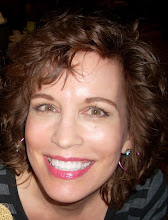
This post, as do many, came from a conversation with a family member. I have a creative and intelligent family. A bit quirky, perhaps, but weird and wonderful. Most of these discussions tend to be with my sister Quinn, but the other day I had one with my nephew Ben.
He, in partnership with my sister, has written a fabulous book…and I got to read it first! I loved it. One of my compliments was that I guessed some plot points, but didn’t others. Ben immediately wanted to know where and what I had guessed, as if guessing is a bad thing.
I thought about that for awhile. I decided there are three main reasons for guessing a plot point:
1) The plot is too predictable.
2) The author has “shown a gun” and used it later on.
3) The plot is following an archetype.
Obviously number one is a “bad” reason for guessing a plot point. Fortunately, Ben did not have any of these. However, he did have some twos and threes. These numbers are not "bad", and in fact, are “good” reasons one should guess.
Number two says essentially that if a writer talks about something more than once (you may have red herrings, after all), he or she should actually do something with it. It’s not fair to readers to discuss at length a magical whatsit and then never use it.
Number three is more complex, and relates to my last post about tapping into the universality of human existence. Jung called these archetypical experiences, and later on Joseph Campbell wrote about observing these themes over and over again in all sorts of media, such as the Star Wars movies. For example, the relationship between Luke, Leia, and Han Solo.
Even if Luke and Leia were not brother and sister, Luke would never have ended up with Leia. Luke had a quest to fulfill. And even though Han Solo may have seemed to be the stronger, more adventurous one, it was Luke who had a destiny to fulfill, with little time to devote to romance. So, watching the movie, most people probably guessed Leia would end up with Han. It’s a gut feeling based on a universal archetype.
Ben’s story had a similar triad, and I correctly guessed who the girl would end up with. This is not bad. It gives the reader that “ ahhhhhhhh” feeling at the end.
I remember in one of my first novels I went against archetype. My female protagonist was on a quest. The quest archetype says very clearly that in order to fulfill the quest something must be given up. At the end of the book I knew this, but I couldn’t stand to hurt a character I had grown to love…I wanted her to have it all. My sister called me on it, and I changed it. It had to be.
Archetype guesses feel good. They keep us connected to what is human. But of course, small twists and new ways of telling an old familiar story is what makes an author special. And yes, Ben did that too.
Oh to be an Aunt to such amazing kids.





No comments:
Post a Comment